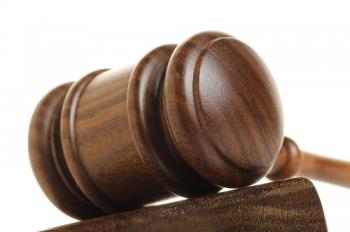Understanding The Courts Role in Legal Guardianship
The court plays an essential role in setting and maintaining guardianship laws. Under existing guardianship law the court must authorize a legal guardianship. Therefore, an individual must file a petition with the court in order to obtain guardianship of a minor or disabled adult. Once the paperwork has been filed, a hearing will take place in front of a judge. If there is a dispute over the guardianship of an individual, then evidence will be presented to the judge in order to support the claims of both parties.
The court will investigate the home of the petitioner in order to ensure that the petitioner is able to provide the child with a safe and stable home in which the child can prosper. The judge is responsible for reviewing and analyzing the evidence in order to determine what is in the best interest of the child.
Guardianship
law gives the judge the power to determine who should receive guardianship of
an individual. Once the judge appoints a legal guardian, then the court acts as
a superior guardian and ensures that the individual who was named legal
guardian continues to uphold guardianship laws.
Guardianship law requires an individual who has
been appointed as a legal guardian to follow all of the orders dictated by the
court regarding the guardianship. Guardianship laws require a legal guardian to
take inventory of all of their ward's assets and provide the court with a list
of the assets. In many cases, the guardian must file a yearly financial report,
which includes receipts illustrating how the ward's money is being spent, as
well as the remaining finances.
If the legal guardianship has been appointed over an incapacitated adult, then guardianship law requires the legal guardian to complete an annual report which describes the ward's physical and mental health, and they must show evidence that the ward continues to need their guardianship. If the legal guardian does not continue to abide by guardianship laws, the court may order the guardian to appear in court. If the judge feels that there is cause to look into the actions of the legal guardian, then guardian law allows the court to order an investigation.
If the court decides that the guardian is not providing proper care, then guardianship laws permit the judge to remove the ward from the care of that guardian. If the court believes that the parents of the child are able to properly care for the child or if an incapacitated adult recovers sufficiently to be able to care for themselves, then the judge is able to terminate the guardianship.
The court has the ultimate authority in all guardianship cases. The court has the power to permit or terminate a guardianship at its discretion. The court will ensure that the child, or the incapacitated adult, are receiving proper care and are not being taken advantage.
Related Topics
- Pennsylvania Guardianship Law
- Indiana Guardianship Law
- Alabama Guardianship Law
- Africa
- Quick Overview On Reporting Child Abuse
- What are Adoption Records
- Know The Age of Consent
- All You Need to Know About Children Laws Overview
- Quick Overview of the Default Judgment of Paternity
- Quick Overview to Sexual Child Abuse
